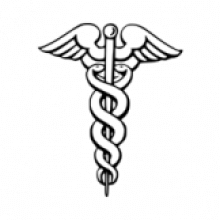A medical malpractice or medical negligence case is a case brought against a health care provide alleging they did something below the standards of care that resulted in injury or death. A medical malpractice claim is a civil case as opposed to a criminal case. A criminal case is brought by the local, state or federal government to prosecute crimes against the state or federal government, or society as a whole.

Often, the first questions clients ask a lawyer are: (1) do I have a case; and (2) what is my case worth? There is significant effort involved in answering these questions.
In order to establish a medical malpractice claim, a plaintiff must demonstrate (1) the physician owed plaintiff a legal duty of care; (2) breach of the duty of care; (3) injury to the plaintiff; and (4) and that the physician’s breach of the duty caused the plaintiff’s injury. Day v. Johnson, 255 P.3d 1064, 1068-69 (Colo. 2011).
The medical malpractice case must be rigorously evaluated, not only for the merits of the case but also for it’s potential damages.
At Springer and Steinberg, P.C., each case is thoroughly examined for negligence and then to determine if the negligence was a cause of injury. Under Colorado law, a physician or health care provider is required to certify that a case has merit in order to go forward. Each case must then be examined for damages. In 1988, the Colorado legislature adopted the Health Care Availability Act (“HCAA”), C.R.S. § 13-64-101, et seq.
The damages under the HCAA are different than other types of tort damages. The HCAA strictly limits the amount of damages that can be recovered for injuries caused by a health care provider. C.R.S. § 13-64-302. The two main damage categories are economic (actual financial losses) and non-economic (pain and suffering). The HCAA limits the amount that can be recovered for non-economic damages. Since medical malpractice cases involve a tremendous outlay of costs, all of these factors are mindfully considered when making a decision regarding a case.
Once a case is filed, we utilize top-notch experts to analyze the facts and then to testify at deposition and trial. Each case that is taken is thoroughly prepared and over the years, Springer and Steinberg P.C. has resolved Plaintiff’s medical negligence cases for substantial sums that fairly compensate them for their injuries and losses under Colorado law.
Finally, under Colorado law, there are time limits imposed on when individuals can file lawsuits against health care providers. While this is best evaluated by an attorney specializing in medical negligence law, typically, a lawsuit must be filed within two years of the date the person knew or should have known about the injury and it’s cause (and in no event longer than three years under certain circumstances). Additionally, any case against a state government entity must be put on notice within 180 days and there are special requirements for filing a medical malpractice lawsuit against the federal government.
At Springer and Steinberg P.C., we specialize in complex and catastrophic injuries and deaths caused by medical negligence and we have extensive experience representing a wide range of plaintiff’s in both state and federal courts. These cases include:
- Surgical errors
- Medical errors
- Products liability
- Pharmaceutical errors
- Birth injuries
- Nursing home negligence
and many others.

